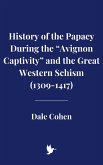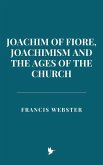The book begins by examining the origins of the Cathar movement, tracing its theological roots in Gnosticism and Manichaeism and its spread into the Languedoc region of France. It explores the unique social and political context of southern France, which allowed Catharism to flourish in opposition to the increasingly centralized French monarchy and the Catholic Church.
Detailed chapters explore Cathar beliefs and practices, including their asceticism, rejection of the material world, and spiritual hierarchy, as well as the Catholic Church's initial attempts to respond to the heresy through preaching, theological debates, and finally, military action. The Albigensian Crusade itself is examined in depth, focusing on key battles, such as the siege of Béziers and the fall of Montségur, and the devastating impact of the crusade on the population of Languedoc.
The book also delves into the role of the Inquisition in the post-crusade period, as the Church sought to eradicate the remaining traces of Catharism. Despite the intense persecution, the Cathars' legacy endured in regional folklore and history, with later romanticized interpretations of the Cathars as symbols of resistance against oppression.
In addition to the detailed historical narrative, the book provides comparative chapters that place the Cathars in the broader context of other medieval heretical movements. By comparing the Cathars with the Waldensians, Lollards, Hussites, Beguines, and Fraticelli, the book highlights the diversity of medieval religious dissent and the different ways these movements challenged the Catholic Church's authority.
Ultimately, this book argues that the suppression of the Cathars had far-reaching consequences not only for the religious landscape of Europe but also for the political and cultural development of southern France. The Albigensian Crusade and the subsequent consolidation of royal power in Languedoc marked a turning point in the centralization of the French state and the Church's approach to dealing with heresy. The Cathar movement, though nearly obliterated, remains a significant part of medieval history, offering insight into the complex relationships between faith, power, and resistance.
Through its in-depth analysis, this book provides a thorough understanding of the rise and fall of the Albigensians, their beliefs, and the broader cultural and political ramifications of their suppression, contributing to our understanding of medieval heresy, ecclesiastical power, and the enduring legacy of religious conflict in Europe.
Dieser Download kann aus rechtlichen Gründen nur mit Rechnungsadresse in A, B, CY, CZ, D, DK, EW, E, FIN, F, GR, H, IRL, I, LT, L, LR, M, NL, PL, P, R, S, SLO, SK ausgeliefert werden.









